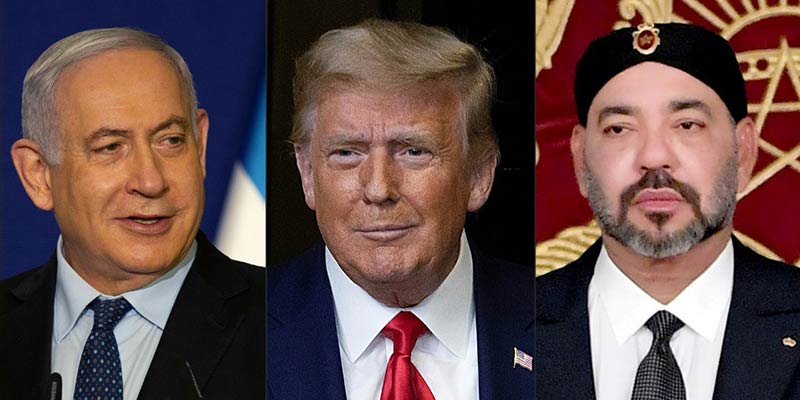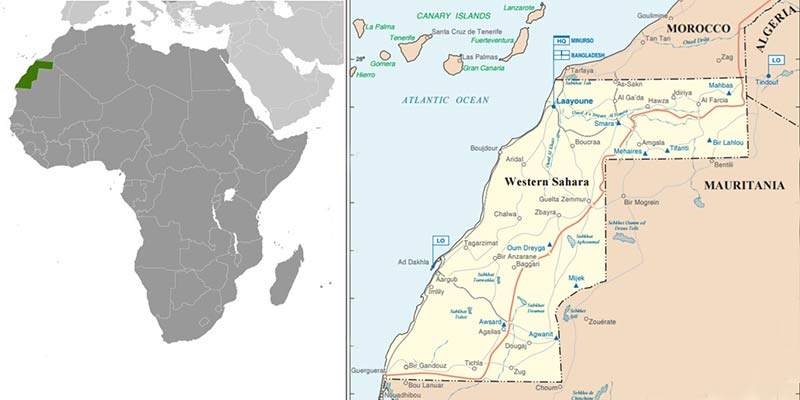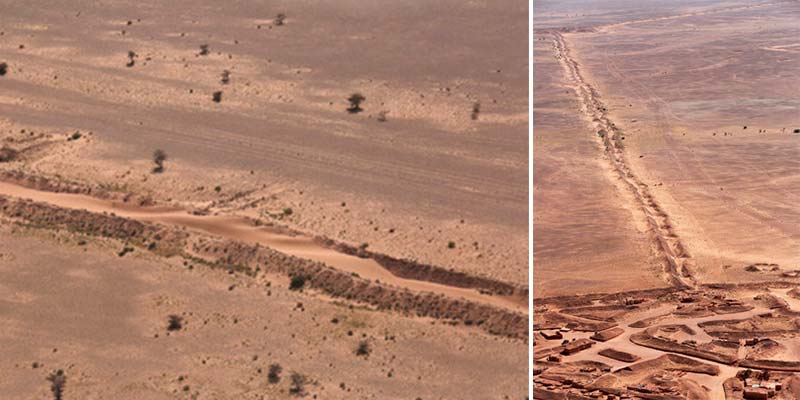- World
- Dec 11
Explainer / Western Sahara conflict
• Israel and Morocco agreed to normalise relations in a deal brokered with US help. Morocco became the fourth Arab country to set aside hostilities with Israel in the past four months. It joins the United Arab Emirates, Bahrain and Sudan in beginning to forge deals with Israel.
Trump agrees Morocco’s sovereignty over the Western Sahara
• In a departure from longstanding US policy, President Donald Trump agreed as part of the deal to recognise Morocco’s sovereignty over the Western Sahara, a desert region where a decades-old territorial dispute has pitted Morocco against the Algeria-backed Polisario Front, a breakaway movement that seeks to establish an independent state.
• President-elect Joe Biden, due to succeed Trump on January 20, will face a decision whether to accept the US deal on the Western Sahara, which no other Western nation has done.
Conflict in Western Sahara
• Western Sahara is a territory on the northwest coast of Africa bordered by Morocco, Mauritania, and Algeria.
• Spain withdrew from its former colony of Spanish Sahara in 1976. Both Morocco and Mauritania affirmed their claim to the territory, a claim opposed by the Polisario Front (Popular Front for the Liberation of the Saguia el-Hamra and Rio de Oro), supported by Algeria.
• Mauritania renounced all claims to Western Sahara in 1979. The Polisario Front formally proclaimed a government-in-exile of the Sahrawi Arab Democratic Republic (SADR).
• Moroccan and Polisario forces fought intermittently until a 1991 ceasefire and the establishment of a UN peacekeeping mission. As part of this effort, the UN sought to offer a choice to the people of Western Sahara between independence (favored by the Polisario Front) or integration into Morocco.
• The proposed referendum on the question of independence never took place due to lack of agreement on voter eligibility.
• A 2,700-kilometre-long sand berm stretching from inside southern Morocco to the Atlantic Ocean at Guerguerat was built during the conflict, of which 1,465 kilometres divides the territory into western and eastern parts.
• There are periodic ethnic tensions between the native Sahrawi population and Moroccan immigrants.
• Morocco has proposed wide-ranging autonomy for Western Sahara. But the Polisario Front insists the local population, which it estimates at 350,000 to 500,000, has the right to a referendum.
• The region is believed to have considerable offshore oil deposits and mineral resources
• The UN revived direct talks about the territory between Morocco, the Polisario Front, Algeria, and Mauritania in December 2018.
• Last month, Polisario Front leader Ibrahim Ghali said the group has ended the 29-year ceasefire with Morocco to resume its armed struggle following a border confrontation.
• A collapse of the truce could reignite a long-dormant guerrilla war in the remote desert region and aggravate decades of friction between Morocco and neighbouring Algeria, which supports the Polisario Front.
• Trump spoke to Morocco’s King Mohammed VI and reaffirmed his country’s support to Morocco’s proposal for sovereignty over the Western Sahara region.
Morocco to resume official contacts with Israel
• King Mohammed VI agreed to resume diplomatic ties between his kingdom and Israel to expand economic and cultural cooperation, which would advance regional stability.
• As part of this deal, Morocco will establish full diplomatic relations and resume official contacts with Israel. It will grant overflights and direct flights to and from Israel for all Israelis, he said.
• The two countries will reopen the liaison offices in Rabat and Tel Aviv immediately, with the intention to open the embassies in the near future. They will be promoting economic cooperation between Israeli and Moroccan companies.
• Morocco has now become the fourth Arab nation to resume ties with Israel this year. The development comes as the US is expanding the number of countries under the Abraham Accords, as part of which the United Arab Emirates and Israel resumed bilateral ties earlier in the year, with a series of trade and technology pacts. Bahrain and Sudan have followed the UAE, becoming the second and third Arab countries respectively to resume ties with Israel recently.
Manorama Yearbook app is now available on Google Play Store and iOS App Store



